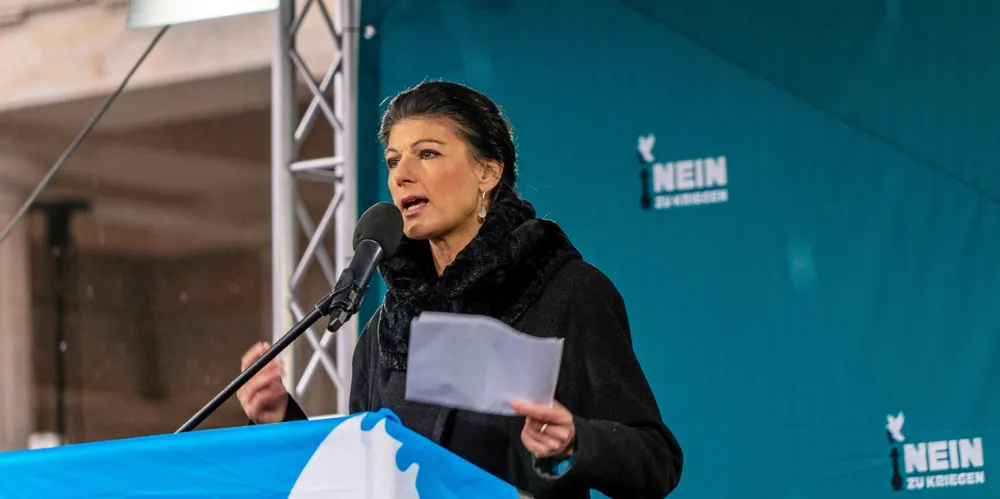Why Germany's talk-show queen is the latest threat to the Energiewende
Charismatic Sahra Wagenknecht stirs up Germany's political landscape with party calling for resumed Russian gas deliveries and end to 'ideology-driven' climate policy

Germany’s already fragmented political landscape became even more complicated this week with the launch of a new party called Sahra Wagenknecht Alliance (BSW), named after a best-selling author of political books and popular talk-show queen.
After stirring up trouble in the smallish radical Left Party for years, which she claims has lost its way by focusing too much on ‘gender and lifestyle politics’ as well as favouring unlimited immigration, the charismatic Wagenknecht has now founded a spin-off that according to recent opinion polls has the potential to garner between 12% and 27% of the German vote.
Wagenknecht labels herself as ‘conservative left’, but most potential voters would actually flock to the new group from the camp of the far-right Alternative for Germany (AfD) party. While trimming the populist right vote may be a welcome side effect, her ideas for climate and energy policies aren’t that far off those of the climate change-denying AfD and could pose a new threat to the country's Energiewende, its transition from fossil and nuclear to renewable energy.
At the founding event Monday, she lobbied for a “sensible” instead of an “ideology-driven” climate policy.
What that means exactly is rather blurry, although Wagenknecht definitely knows how to talk. “It's no use if we imagine a 'make a wish world'. Firstly, Germany can't manage this alone. We all saw at the last climate conference that this is being discussed very differently around the world. And secondly, we in Germany should take the steps that make sense,” Wagenknecht told journalists.
The latter undermines the previously strong position of German carmakers, which instead should have been steered to produce models with very low consumption that could have become an export hit, according to Wagenknecht. The EU’s emission trading with “ever more expensive certificates” won’t help the climate as it drives industry out of Europe, the new party claims.
'Blind activism'
The BSW in its founding programme doesn’t mention climate neutrality at all and states Germany's energy supply cannot be secured through renewable energy alone.
“Blind activism and ill-conceived measures do not help the climate, but they endanger our economic substance, make people's lives more expensive and undermine public acceptance of sensible climate protection measures.”
Economic sanctions against Russia and an “alleged climate policy” all the sudden had made energy more expensive, and threatened Germany with the loss of important industries and hundreds of thousands of well-paid jobs, the programme continues.
Unsurprisingly, Wagenknecht has been lobbying for negotiations with Russia to resume deliveries of inexpensive piped gas to Germany and has led demonstrations against weapon supplies to Ukraine – in synch with demands by the AfD.
Downplaying the Russian threat in favour of economic advantages for the country is backed by a majority of Eastern Germans, where Wagenknecht grew up during Communist times as the daughter of a German mother and an Iranian father.
After elections to the European Parliament in June, Eastern Germany will be the most important real test for the BSW, as three eastern states will hold elections in the fall – Saxony, Thuringia (which currently is governed by a Left-led coalition) and Brandenburg, the state surrounding Berlin.
In all three of the Eastern states, the BSW could gain important shares of the vote, and possibly impede the extremist AfD from becoming the largest party. But coalition building promises to be rather complicated given Wagenknecht's hostility to the Greens, which currently are part of fragile governing coalitions in all three states.
Wagenknecht sees a good result in this year’s elections as a warm-up for the real prize, federal elections next year.
Forming a stable government after the emergence of Wagenknecht’s party could become even trickier. And a majority for progressive climate and energy policies as under the current administration could be a thing of the past.
(Copyright)